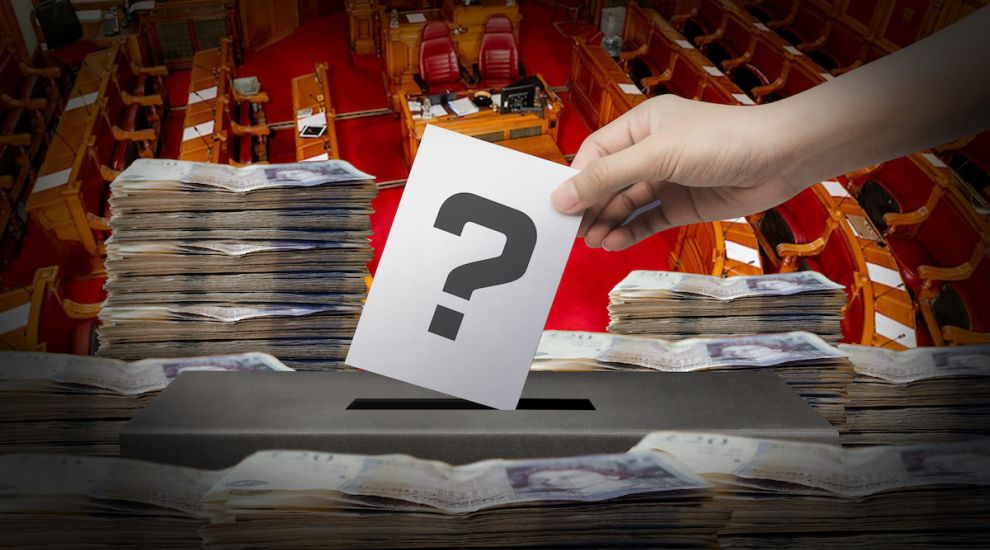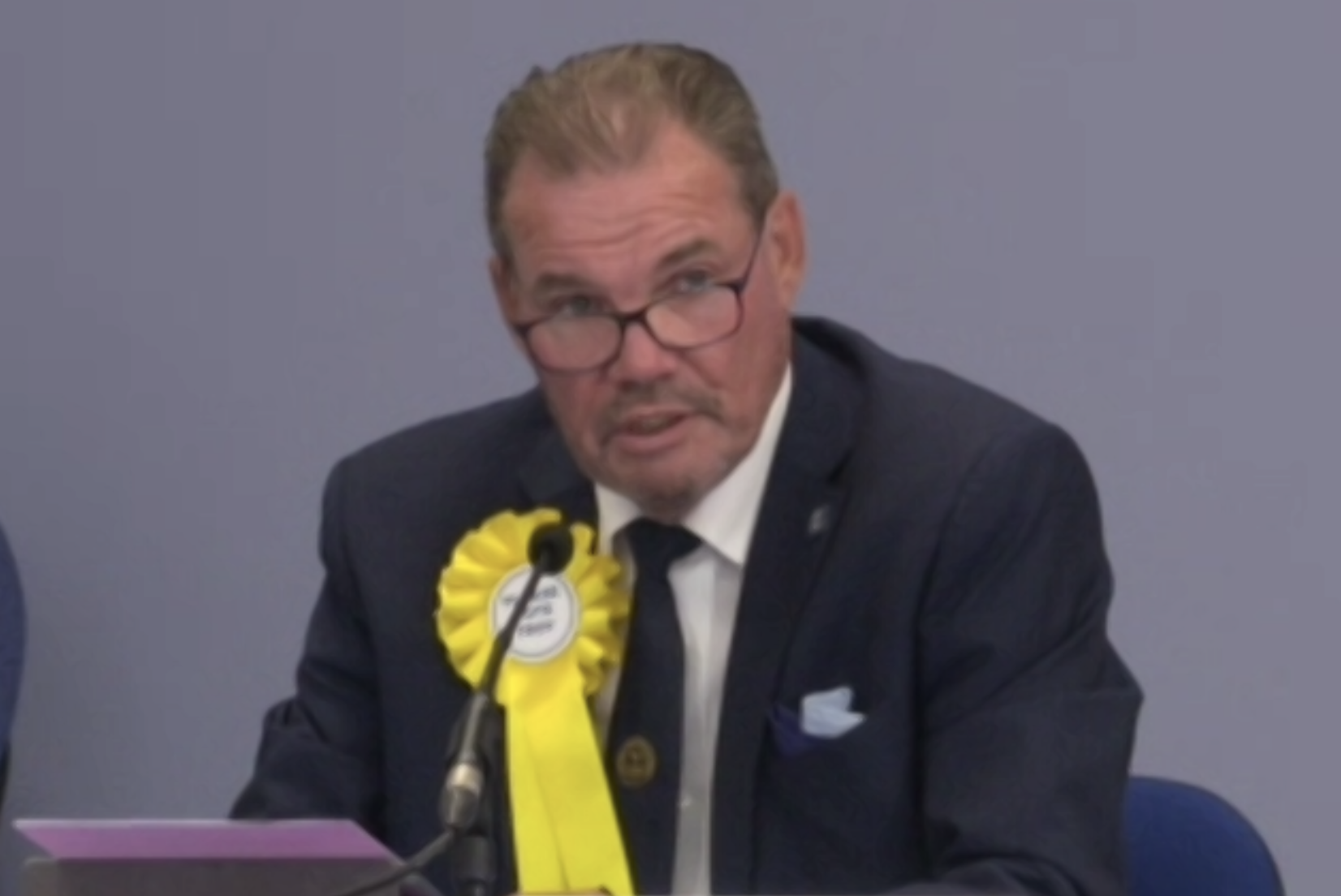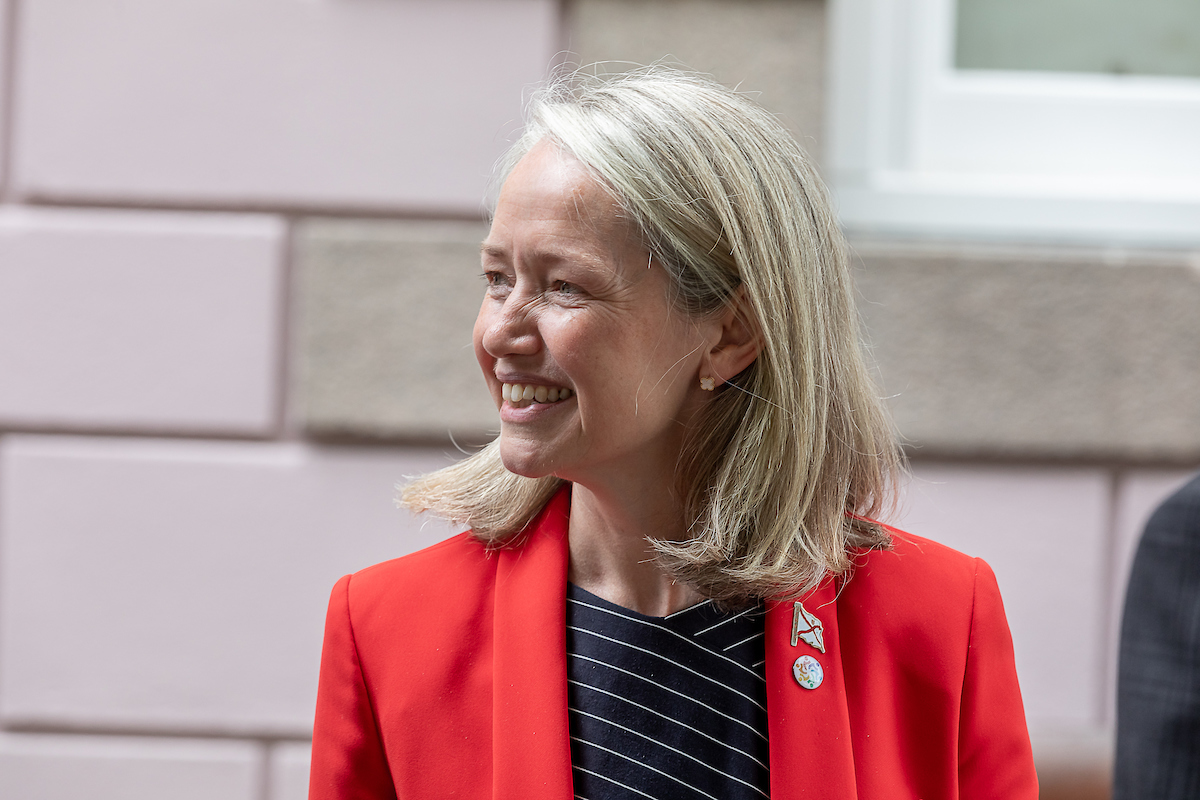


How much did your vote cost? Which election candidate ran the slickest, best value campaign? And who had the worst pound-per-vote ratio?
Express has been digging into the spending figures for each election candidate to establish if money can really buy you votes...
While the latest updates to our voting system split the island into roughly equal-sized constituencies for voting for Deputies, Constables will have a much larger variation in their potential spend, as some parishes are more populous than others.
After the election, all candidates – successful or not – must declare their spending within four weeks. If they don't, they may face a fine.
The rules also mean that donations must also be declared – no anonymous donors allowed.
All of that information is listed in a form, and then shared with the public online.
So, the moment you've all been waiting for... who spent most overall on their campaign, and who spent the least?
Of all the Deputies, 'super-constituency' representative Kirsten Morel had the highest spend. The Trinity, St. Lawrence and St. John politician, and now Deputy Chief Minister, spent a total of £2,932.57.
He was closely followed by unsuccessful candidate for the same area, former Deputy Hugh Raymond of the Jersey Alliance, who spent £2,837 on his campaign.
The smallest campaign spender, meanwhile, was former St. Saviour Deputy Kevin Pamplin, who spent £324.86 on his unsuccessful second attempt to stand.
Of the Constables, and indeed of any States Member, elected leader of the largest parish spent the most. Simon Crowcroft spent a total of £4,185 on his campaign – nearly five times as much as his competitor for the St. Helier role, Mark Le Chevalier.

Pictured: St. Helier Constable Simon Crowcroft spent the most on his campaign - though he was seeking to be elected in the island's most populated parish.
The lowest spending Constable was St. Clement's Marcus Troy, who had only just stepped into the shoes of the late, great Len Norman during a by-election around a year before.
Totalling just £156.01, his spending consisted of a £120 donation to Jersey Arthritis for use of its minibus and £36.01 spent on petrol for the vehicle.
However, looking at the spending alone only tells part of the story... who had the best value campaign and who had the worst? In other words, what was the cost per vote?
Three of the top five 'bad value' Deputy candidates were from the Jersey Alliance Party.
Jo Luce (St. Helier South) is recorded as having spent £2,486, meaning her 220 votes worked out as more than £11 each.
Hugh Raymond (Trinity, St. Lawrence, St. John) secured 421 votes at around £6.70 each, while James Corbett KC (St. Brelade) secured the same number of votes at around £6.05 each.
The other two of the top five were Jersey Liberal Conservatives: Angela Jeune (St. Helier South), who spent roughly £9.15 per vote, and Julie Wallman (St. Helier Central), whose votes worked out at just over £7 each.
The successful candidate with the 'worst value' campaign was David Warr (St. Helier South), whose 616 votes worked out at more than £3 each.
David Johnson, who successfully transferred from St. Mary Deputy to Constable during the election, spent the most per vote of any parish head, with his 400 votes working out as nearly £3.90 each.
Unsuccessful Grouville and St. Martin runner Piers Sangan had the best value campaign of any Deputy candidate – he secured more than 1,300 votes for his slim spend of £517.82, working out as less than 40p per vote.
Meanwhile, St. Helier North Deputy Mary Le Hegarat secured a seat in the States Assembly with the support of more than 1,200 islanders – having spent just over £524.53, her cost per vote was just 41p.

Pictured: St. Clement Constable Marcus Troy spent the least on his campaign - and had the best value campaign.
However, it is the lowest spender overall, unopposed St. Clement Constable Marcus Troy, that takes the crown for best value campaign, with each of his 2,039 votes working out at 7-8p each.
How does the spend-per-vote ratio work out for those now running the island?
Spend-per-vote for Chief Minister Kristina Moore (Better Way movement), who had the largest mandate of any Deputy with 2,730 votes in St. Mary, St. Ouen and St Peter, works out as 75p.

Pictured: Chief Minister Deputy Kristina Moore had the best value campaign of any member of the Council of Ministers, followed by Infrastructure Minister Tom Binet.
That of her Deputy Chief and Economic Development Minister Kirsten Morel, the highest spender of all Deputy candidates, is just under £1.10.
St. Saviour poll-topper and now Infrastructure Minister Tom Binet ran one of the best value Ministerial campaigns, with votes around 91p a pop.
Treasury Minister Ian Gorst, who stood in the western 'super-constituency' spent roughly £1.03 per vote.
International Development Minister Carolyn Labey, who ran in the new constituency of Grouville and St. Martin, spent around £1.21 per vote, as did Education Minister and St. Helier North Deputy Inna Gardiner.
Environment Minister Jonathan Renouf of St. Brelade spent around £1.36 per vote, while the election expenditure of his fellow St. Brelade Deputy, Home Affairs Minister Helen Miles, worked out as roughly £1.16 per vote.
Each of Social Security Minister Elaine Millar's votes in Trinity, St. Lawrence and St. John were worth around £1.25 each.
Health Minister Karen Wilson, who ran in St. Clement, spent nearly £1.43 per vote.
External Relations Minister Philip Ozouf, who returns to the States Assembly as a St. Saviour Deputy, had a ratio of just under £2.50 per vote, while, as mentioned, Housing Minister David Warr's campaign ratio topped the £3 mark.
Parties have the opportunity to pool and share their resources, which gave them the potential to run a lean campaign.
Turning to each party leader, the 721 votes for Sir Mark Boleat (Jersey Alliance), who unsuccessfully stood in the Parish of St. Clement, worked out as just under £3.50 each.
Running in the same parish was the Jersey Liberal Conservatives' successful leader Sir Philip Bailhache, whose 1,251 votes average out as just over £2 each.

Pictured: Sam Mézec had the 'best value' campaign of any party leader.
Steve Pallett was leader of the Progress Party, which entered into coalition with the JLC. His 1,328 votes, which were just short of securing him a seat in St. Brelade, worked out at around £1.40 each.
St. Helier South poll-topper and Reform Jersey leader Sam Mézec had the best value campaign of any leader, with his £729 spending stretching to 955 votes, working out at around £76p each.
Follow Express for a fuller breakdown of election spending on Monday... Sign up to our daily news email for free here so you don't miss it.
Comments
Comments on this story express the views of the commentator only, not Bailiwick Publishing. We are unable to guarantee the accuracy of any of those comments.